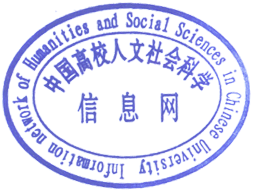中国高校人文社会科学信息网函件
论文刊载证明
高中生物理学习自我监控与自我效能感、成就目标定向、归因的关系研究 于 2011-10-07 在中国高校人文社会科学信息网(互联网出版许可证:(总)网出证(京)字第052号)刊载,对外公开发表。论文作者为:胡象岭 。特此证明。
刊载地址:https://www.sinoss.net/c/2011-10-07/555852.shtml
中国人民大学出版社
中国高校人文社会科学信息网
2011-10-07

关 键 词 :高中生 自我监控 自我效能感 成就目标定向 归因学科分类: